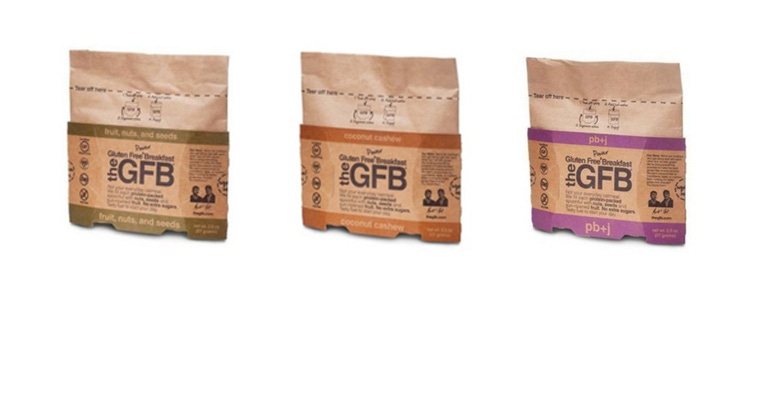Each day at 5 p.m. we collect the five top food and supplement headlines of the day, making it easy for you to catch up on today's most important natural products industry news.
November 15, 2017

Paper pouch-bowl empowers breakfast portability
On-the-go grain breakfasts were trending at Expo East, and this one has an interesting packaging twist. Gluten Free Bar’s new Power Breakfast product mixes gluten-free oats, hemp, flax, fruit, seeds and nuts in a proprietary pouch that’s something between a typical instant oatmeal packet and a recyclable paperboard bowl. Consumers rip the top off of the pouch, reform the paperboard around the bottom of the pouch to create a square-bottomed bowl, add water and microwave for a quick breakfast without having to wash any dishes (remember that survey from last year that claimed that 40 percent of millennials said cereal was an inconvenient breakfast choice because they had to wash the bowl after eating?). Read more at Packaging Digest…
FDA warns about dangers of ‘natural’ opioid kratom
The safety of the botanical supplement kratom has been hotly debated in recent years. Though some say it's a safe alternative for treating pain and opiate withdrawal symptoms, the FDA issued a public health advisory warning that it may cause seizures, liver damage or other symptoms, and that there isn’t enough evidence that it’s an effective treatment for opioid addiction. In August of last year, the DEA classified kratom as a Schedule 1 drug but reversed course later amid pushback from the public and Congress. Now, FDA Commissioner Scott Gottlieb has weighed in: “At a time when we have hit a critical point in the opioid epidemic, the increasing use of kratom as an alternative or adjunct to opioid use is extremely concerning.” He continued on Twitter, "FDA is actively working with our partners at the Drug Enforcement Administration to further evaluate kratom and determine how it should be scheduled." Read more at NPR…
Boulder’s Alfalfa’s Market sells to Denver investors
The founders of the nearly 40-year-old natural retail chain, Mark Retzloff and Barney Feinblum, sold their majority shares to vice presidents of property management company Lincoln Property Company and wealth management company Alliance Bernstein. The new owners say they plan to remodel Alfalfa's flagship store on Broadway and add new locations, including smaller stores in dense neighborhoods. Read more at DailyCamera…
This company wants to build a giant indoor farm next to every major city in the world
Plenty is a Silicon Valley startup that’s hoping to cash in on the promise of vertical farming. Armed with a $200 million investment announced this July, Plenty plans to build a 100,000 square-foot warehouse just outside of Seattle where it would grow 4.5 million pounds of greens annually. Unlike other indoor farms, the company uses 20-foot vertical towers to grow its greens, with water and nutrients fed in from the top and light provided by LED lights. Cameras and sensors are constantly measuring temperature, moisture and plant growth, and artificial intelligence is used to make adjustments. Read more at Vox…
Will Amazon reduce Whole Foods’ local sourcing?
Streamlining processes and improving efficiency are likely goals for Whole Foods Market under Amazon, but where does local sourcing fit into that? A spokeswoman for the company told Adweek that the goal is to use local suppliers in the categories where they “will be successful and positioned for growth.” Meanwhile, national and regional chains like Kroger and Wegmans are upping their local game. Read more at Adweek…
You May Also Like


